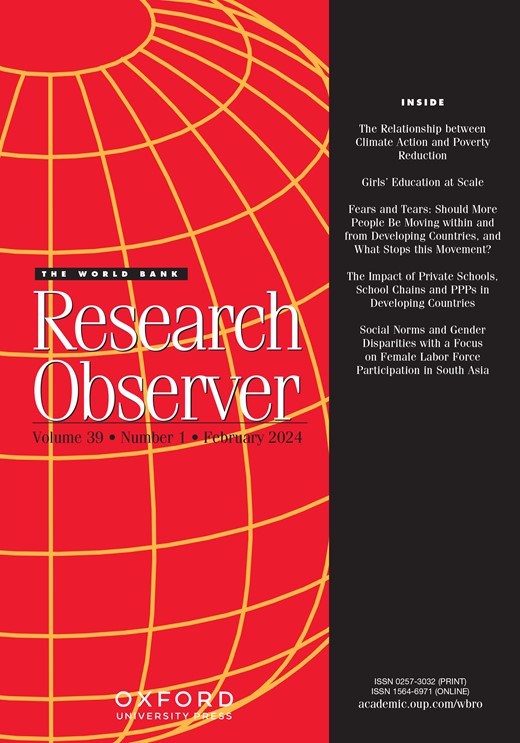What Makes Public Sector Data Valuable for Development?
IF 3.3
1区 经济学
Q1 DEVELOPMENT STUDIES
引用次数: 2
Abstract
Data produced by the public sector can have transformational impacts on development outcomes through better targeting of resources, improved service delivery, cost savings, increased accountability, and more. Around the world, the amount of data produced by the public sector is increasing rapidly, but we argue the full potential of data to improve development outcomes has not been realized yet. We outline 12 features needed for data to generate greater value for development and present case studies substantiating these features. We argue that a key reason why the transformational value of data has not yet been realized is that suboptimal data—data not satisfying these 12 features—are being supplied. The features are that the data should be of adequate spatial and temporal coverage (complete, frequent, and timely), should be of high quality (accurate, comparable, and granular), should be easy to use (accessible, understandable, and interoperable), and should be safe to use (impartial, confidential, and appropriate).是什么使公共部门数据对发展有价值?
公共部门产生的数据可以通过更好地定位资源、改善服务提供、节约成本、加强问责制等方式,对发展成果产生变革性影响。在世界各地,公共部门产生的数据量正在迅速增加,但我们认为,数据改善发展成果的全部潜力尚未实现。我们概述了数据为开发产生更大价值所需的12个特征,并提出了证实这些特征的案例研究。我们认为,数据的转换价值尚未实现的一个关键原因是,提供了不满足这12个特征的次优数据。特征是数据应该具有足够的空间和时间覆盖(完整、频繁和及时),应该具有高质量(准确、可比较和粒度),应该易于使用(可访问、可理解和可互操作),并且应该安全使用(公正、机密和适当)。
本文章由计算机程序翻译,如有差异,请以英文原文为准。
求助全文
约1分钟内获得全文
求助全文
来源期刊

World Bank Research Observer
Multiple-
CiteScore
12.60
自引率
1.20%
发文量
8
期刊介绍:
The World Bank Journals, including the Research Observer, boast the largest circulation among economics titles. The Research Observer is distributed freely to over 9,100 subscribers in non-OECD countries. Geared towards informing nonspecialist readers about research within and outside the Bank, it covers areas of economics relevant for development policy. Intended for policymakers, project officers, journalists, and educators, its surveys and overviews require only minimal background in economic analysis. Articles are not sent to referees but are assessed and approved by the Editorial Board, including distinguished economists from outside the Bank. The Observer has around 1,500 subscribers in OECD countries and nearly 10,000 subscribers in developing countries.
 求助内容:
求助内容: 应助结果提醒方式:
应助结果提醒方式:


